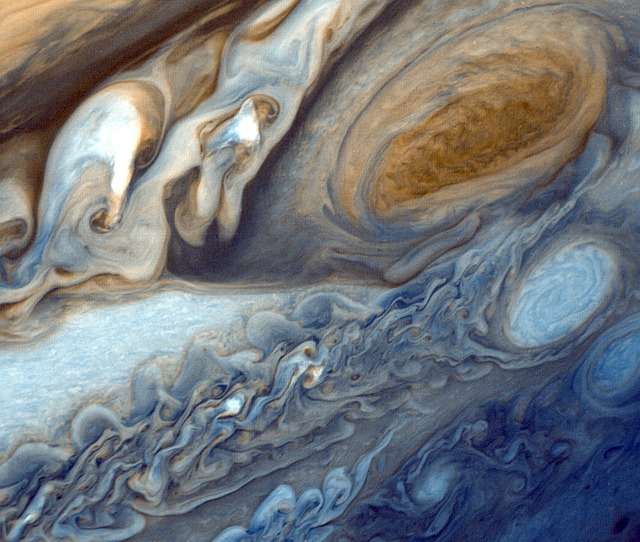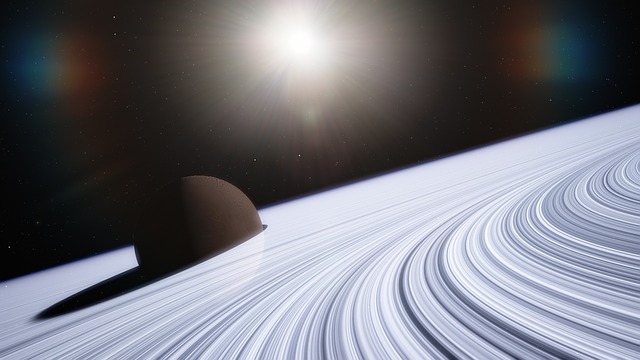*This post may contain affiliate links. This means we may make a commission if you purchase an item using one of our links*
A planet’s density is the ratio of its mass to its volume. The denser a planet is, the more closely packed together all of its particles are. Jupiter is denser than Saturn because its gravitational pull is more substantial, and it has more mass than Saturn.
Continue reading to discover why Jupiter is so much denser than its fellow gas giant Saturn and if, theoretically, you could float the planet in a giant bathtub.
What Makes Jupiter As Dense As It Is?
Table of Contents

Jupiter is the largest planet in our solar system. It is so massive that it can hold more than 1,300 Earths inside its volume. Jupiter’s mass is about 318 times that of Earth, which means that it has a tremendous gravitational pull.
After the formation of our Sun, Jupiter acquired most of its mass from the leftover materials of this creation. As the largest planet in the Milky Way, Jupiter acquired twice the mass of all other planets combined (if it had gathered much more, it would have become a star itself).
This mass creates a tremendous gravitational pull which compresses the materials in its surroundings, packing the particles more closely together and making the planet denser.
The composition of Jupiter can be described by its layers: the upper atmosphere consists mainly of hydrogen and some helium gases, along with traces of water vapor, methane, ammonia, and silicon-based compounds; the interior is denser with a rough composition of 71% hydrogen, 24% helium, and a 5% mixture of other elements.
Due to the dense, swirling clouds of gas giants, scientists can’t observe their inner composition. Still, the majority believe that the core is solid, making it the densest part of the planet. This is because of the increased pressure towards the center of a planet which compresses objects, making them denser.
The theory of planetary formation also supports the idea of a dense rocky core, as it would have been necessary – at some point in the planet’s history – for Jupiter to collect vast quantities of hydrogen and helium from the protostar nebula.
Still, this core may have reduced in size or even disappeared over time. Scientists hope to find more answers via missions such as NASA’s Juno explorer, which is currently orbiting the planet.
Why Is Saturn The Least Dense Planet?

Saturn has a low density because it is mainly made of gas, which is less dense than solid materials like rocks. Its density of 0.69 g/cm3
makes it the least dense planet in the solar system, with a density that is 30% lower than water.
The density of Saturn is less than water; this means that it would float on water if you placed it in a large enough body of liquid. This is because Saturn is composed primarily of hydrogen and helium gas, which have low densities, and ammonia ice (which has a density less than water).
Saturn has a density of 0.69 g/cm3, whereas Jupiter has a density of 1.33 g/cm3. Both are far lower than Earth, which has a density of 5.51g/cm3. All the terrestrial planets have a higher density because the materials that make up their bodies are far heavier than the light elements that float around the gas giants.
Still, Jupiter and Saturn both have a composition primarily hydrogen and helium, so why is one far denser than the other? The answer is the sheer gravitational pull of Jupiter. As the largest planet in our solar system, its gravity compresses the molecules of these elements, so they are packed together more tightly than the same particles on the planet Saturn. This is why the overall density is higher.
Can Jupiter Float On Water?
The density of an object determines whether or not it will float on water. Density is mass per unit volume or how much matter there is in a certain amount of space.
The more dense an object is, the denser its molecules are and, therefore, more tightly packed together. If an object’s density exceeds that of water, it will sink to the bottom; if less dense than water, it will float on top.
Water is a liquid, and it is the most abundant substance on Earth. The density of water is 1 gram per cubic centimeter. The density of a substance is the measure of its mass per unit volume. Jupiter’s density is 1.33g/cm3, meaning its mass is 1.33 times greater than the mass of water (1g/cm3) for the same volume.
Therefore Jupiter would sink. In addition, Jupiter has no solid surface, so it would not float on water even if it had a lower density.
Summary
Jupiter has a far greater density than Saturn because of its mass; if you continue adding mass to a planet, it compresses the underlying layers to make them denser. Jupiter is three times more massive than Saturn, so its gravitational pull is much stronger, and its materials compress into denser materials.
References
Does Jupiter Have a Solid Core? – Universe Today
11_Lecture_Outline (case.edu)
Saturn and Jupiter: Similarities and Differences of Two Giants (wondriumdaily.com)


Imagine if Jupiter becomes a brown dwarf (failed star) for real
On a technical level it’s not really possible but it’s certainly an interesting thought experiment